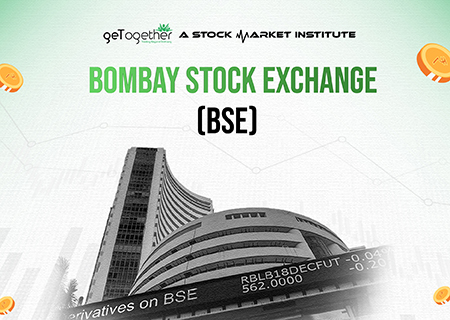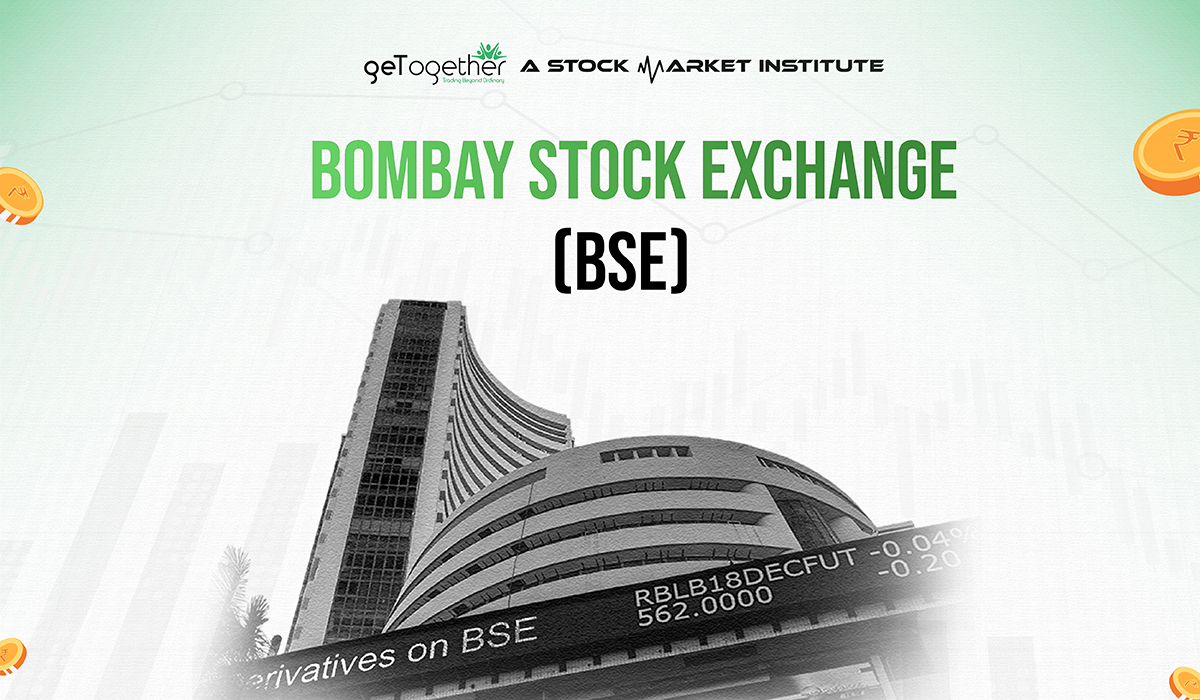Bombay Stock Exchange (BSE)


The Bombay Stock Exchange (BSE) is one of India’s oldest and most significant stock exchanges. It is a significant player in the capital market of the nation, which spans more than a century. We will discuss about the Bombay Stock Exchange, its key players, performance and indices, advantages and disadvantages, and prospects for the future in this blog.
Table of Contents
ToggleOverview and Background
Mumbai, India is home to the Bombay Stock Exchange, which was established in 1875. It started as a group of stockbrokers who wanted to make trading easier and give businesses a place to raise money by selling stocks and other securities. The Bombay Stock Exchange has grown into a prominent stock exchange over the years, attracting investors from all over the world.
Functions and Importance
The Bombay Stock Exchange serves as a trading platform for equities, derivatives, commodities, bonds, and other financial instruments. By enabling investors to participate in the expansion of these businesses and providing businesses with a platform from which they can raise funds for expansion, it catalyzes economic growth. The Indian capital market’s transparency and fairness are also vitally important functions of the exchange
How does BSE operates?
The BSE Online Trading (BOLT) system is the electronic trading platform that underpins the BSE’s operations. By providing real-time information on stock prices, order matching, and trade execution, this system makes trading smooth and effective. Investors and traders can quickly place orders and carry out transactions. thanks to the BOLT system, which contributes to increased market liquidity and efficiency.
1. Structure and Governance
The Bombay Stock Exchange is run by a Board of Directors made up of professionals, market participants, and experts in the field. The exchange is run smoothly by this governing body, which also creates rules and policies to ensure fairness and transparency.
2. Sessions for Trading
The Bombay Stock Exchange has a set number of trading sessions and operates during those hours. Before the market opens, participants can place, modify, or cancel orders during the pre-opening session. The actual buying and selling of securities is made easier during the regular trading session. The closing price of securities is determined during the closing session, which also makes it easier to calculate indices.
3. Listing and Market Segments
Firms wishing to list their securities on the Bombay Stock Exchange must abide by the exchange’s listing guidelines. Based on the size, financials, and regulatory compliance of the listed companies, the BSE provides various market segments. The Main Board, SME (Small and Medium Enterprise) Platform, and Startups Platform (BSE Startup) are examples of these divisions.
4. Market Surveillance
The BSE employs cutting-edge surveillance systems to identify any irregularities, market manipulation, or insider trading activities to maintain market integrity. Any violations are dealt with promptness.
5. Management of Market Volatility and Risks
The BSE, like every other stock exchange, faces risks and volatility in the market. The ups and downs of the stock market are influenced by economic conditions, geopolitical events, and investor sentiment. Risk management measures are implemented by the BSE to prevent excessive market volatility and ensure orderly trading.
The BSE’s Key Players:
Investors and Traders The BSE draws a diverse group of investors and traders, including retail investors, foreign investors, and institutional investors. Market trends are significantly shaped by institutional investors like mutual funds, insurance companies, and pension funds. On the other hand, retail investors participate in wealth creation and contribute to market liquidity.
Regulators and Exchanges:
The Securities and Exchange Board of India (SEBI), which regulates India’s stock exchanges, sets the regulatory framework within which the BSE operates. To keep the trading environment fair and transparent, SEBI monitors market activities, ensures investor protection, and enforces regulations. Clearing houses and depositories, which help with securities settlement and custody, are additional important players.
Also Read: Stock Market Timings
Performance and Market Indices:
The benchmark indices of the BSE, such as the Sensex and Nifty, are well-known. These lists address the general exhibition of the securities exchange by following the costs of chosen stocks. Market capitalization, share prices, and free-float market capitalization are all taken into account when calculating indices. Investor sentiment and market trends can be gleaned from these indices.
Monitoring the BSE’s Performance:
Investors and market participants closely monitor the BSE’s performance to evaluate the Indian economy as a whole and make educated investment decisions. The BSE’s performance is influenced by macroeconomic indicators, geopolitical events, corporate earnings, global market trends, and other factors. Investors can get assistance in making decisions by getting regular forecasts and updates from market analysts and research firms.
Challenges and Advantages
The BSE has several advantages for market participants. Investor confidence is ensured by the platform’s well-regulated and transparent nature. Companies can raise funds for expansion and growth because the exchange makes capital formation easier. By attracting both domestic and international investments, the BSE also contributes to the overall growth of the Indian economy.
Despite its advantages, the BSE faces several obstacles. Investor sentiment and trading volumes can affect market volatility, economic swings, and geopolitical uncertainty. To preserve the integrity of the market, the exchange continuously strives to improve management and market surveillance mechanisms by focusing on technological advancements.
Prospects for the Future
The BSE intends to strengthen its position as a leading stock exchange through ongoing regulatory reforms and initiatives that place investor interests first. The BSE focuses on ongoing innovation and growth. It is committed to making use of technological advancements to boost trading efficiency and broaden its product offering. Additionally, it focuses on financial literacy education and awareness programs for investors. The exchange is looking into green finance, renewable energy, and technology-driven businesses as potential markets.
Conclusion
With its long history, robust trading system, diverse market segments, and benchmark indices, the Bombay Stock Exchange (BSE) is a significant catalyst for the Indian capital market and plays an important role in India’s financial marketplace. The BSE is committed to preserving the integrity of the market, boosting investor confidence, and driving long-term growth despite the difficulties it faces.
FAQs
1. Is there only one stock exchange in India? The Bombay Stock Exchange is the only one.
No, India has multiple stock exchanges, including regional and the National Stock Exchange (NSE).
2. Can the Bombay Stock Exchange be directly invested in by individuals?
Through registered brokers or online trading platforms, individuals can invest in securities listed on the BSE.
3. How frequently are the market files, like the BSE Sensex, refreshed?
Throughout the trading session, the BSE Sensex and other indices are calculated and updated in real time.
4. On the Bombay Stock Exchange, can foreign investors trade?
Yes, registered foreign institutional investors (FIIs) and foreign portfolio investors (FPIs) are also available to invest in Indian securities.
5. What kinds of regulations has SEBI implemented for the BSE?
The BSE’s listing requirements, disclosure standards, market surveillance, and investor protection measures are all governed by SEBI.
CATEGORIES



 Facebook
Facebook Instagram
Instagram Youtube
Youtube
